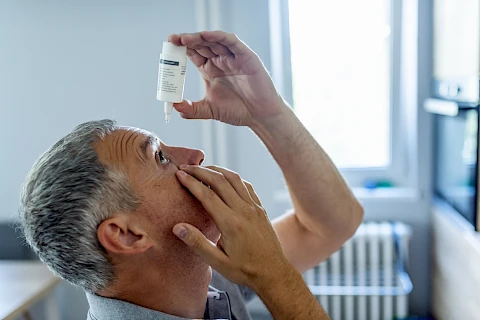
Glaucoma is a severe eye condition that can lead to blindness if not treated. Raising awareness about glaucoma is crucial, especially for seniors and their caregivers. Knowing the risks, symptoms, and treatments can make a big difference. This article provides vital information about glaucoma to help seniors in the Visalia area take preventive steps and seek timely treatment.
Defining Glaucoma
Glaucoma is a group of eye diseases that damage the optic nerve. The most common types are open-angle glaucoma and angle-closure glaucoma. This damage often leads to vision loss and, eventually, blindness. Glaucoma primarily affects peripheral (side) vision initially, which makes it harder to notice early on.
Statistics show that glaucoma is a significant concern for seniors. It is one of the leading causes of blindness for people over 60. Since it develops slowly over time, early detection is crucial to managing the disease effectively.
Risk Factors for Glaucoma
Several factors increase the risk of developing glaucoma:
- Age: The likelihood of glaucoma increases as you get older, particularly after the age of 60.
- Heredity: If someone in your family has glaucoma, your risk is higher.
- Underlying conditions: Medical conditions like diabetes and high blood pressure can contribute to glaucoma.
- Lifestyle choices: Lifestyle factors such as smoking and prolonged use of steroids also elevate the risk.
Recognizing Symptoms
Knowing the symptoms of glaucoma can help in early detection. In the beginning, you may not notice the symptoms. Watch for the following signs:
- Subtle changes like blurred vision or difficulty seeing in low light
- Tunnel vision
- Severe headaches
- Eye pain
- Sudden loss of vision
You must check your eyes immediately if you notice any changes in your vision. Early treatment can prevent severe damage.
Why Early Detection is Crucial
Early detection of glaucoma can significantly improve treatment outcomes. Regular eye exams are essential for diagnosing glaucoma early. These exams include tests that measure eye pressure and assess the optic nerve. Seniors should schedule a comprehensive eye exam annually. Early diagnosis of glaucoma allows for easier management and can help preserve your vision longer.
Treatment Options
If you are diagnosed with glaucoma, several treatment options are available:
- Medications (eye drops): Special eye drops can help reduce eye pressure and prevent further damage.
- Laser therapy: Laser treatment can improve fluid drainage from the eye, reducing pressure.
- Surgical options: In more advanced cases, you may need surgery to create a new drainage pathway.
- Importance of adhering to treatment plans: Following the treatment plan your doctor prescribes is crucial. This plan may include regular use of eye drops and attending follow-up appointments.
Living with Glaucoma
After a glaucoma diagnosis, you can still lead a fulfilling life by taking specific steps.
- Adjust your environment to ensure safety by using better lighting and avoiding tripping hazards.
- Join support groups or connect with organizations that offer resources for people with glaucoma.
- Keep an open line of communication with your eye doctor and primary care physician to manage your condition effectively.
We are Here to Help
Glaucoma is a severe condition but manageable with early detection and proper treatment. Seniors and their caregivers should be aware of the risks, symptoms, and available treatment options. By taking proactive steps, such as scheduling regular eye exams and adhering to treatment plans, you can help preserve your vision.
If you reside in Visalia, Hanford, Tulare, Kings County, or Tulare County and need help caring for your senior loved one, contact us at Senior Helpers Visalia. We would love to discussour services for seniors and their caregivers, such as Personal Care and Chronic Disease Care.